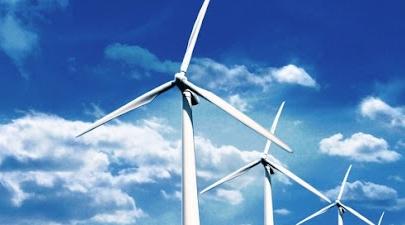The seawater desalination plant in Dakhla, fully operated using wind energy, provides an eco-friendly solution for supplying drinking water and irrigation in this water-stressed region.
The new plant, located 130 km north of Dakhla, with its construction currently 57% complete, is scheduled to provide a sustainable source of water resources for agricultural activity and to supply the local population with drinking water starting next year.
This project, costing 2.5 billion dirhams, began in December 2022 and is part of the new development model for the southern provinces, launched by His Majesty King Mohammed VI in 2015.
The project opens the way for creating a new irrigated area of 5,200 hectares, aimed at encouraging the expansion of agricultural lands dedicated to early and high-value crops, primarily for export.
The Dakhla desalination plant, being constructed under Law No. 12-86 governing public-private partnerships, is one of the pioneering projects being implemented with partner involvement at all stages: from design to financing, through implementation and operation.
In this context, water expert Khalid Ghazali told the Moroccan News Agency that the new plant, once operational, will provide 37 million cubic meters of water annually, with seven million cubic meters allocated for drinking water intended for the city of Dakhla and its surroundings.
He added that the adjacent wind power field, with a capacity of about 60 megawatts annually, will ensure the production of renewable energy necessary for the plant’s operation, calling for the adoption of daily practices that contribute to preserving water resources and rationalizing their use in all fields.
This is the first project of its kind nationally to be 100% powered by wind energy, with significant social and economic impact expected.
The irrigation network, extending 113 kilometers with a flow rate of one cubic meter per second, is anticipated to play a crucial role in securing irrigation water supply.
In the medium and long term, this project will also contribute to creating new development opportunities, particularly through the extension of electricity networks.
It will open up multiple development prospects for tourism activities and other high-value-added economic sectors, thus contributing to stimulating local activity and strengthening Dakhla’s position as a strategic economic hub in the region.
It is worth noting that, in implementation of the high royal directives, a series of strategic projects have been launched to address the challenges posed by water scarcity, within the framework of the National Program for Drinking Water Supply and Irrigation 2020-2027.
These projects have been accompanied by the implementation of several emergency measures, launched since 2020, aimed primarily at securing the supply of drinking water for all residents of the Kingdom, notably through the completion of many projects for the reuse of treated wastewater, reaching an annual volume of 37 million cubic meters to irrigate 31 golf courses and green spaces in 17 cities, alongside a complementary program to mobilize 137 million cubic meters by 2027 to irrigate the remaining 19 golf courses, as well as other projects in the agricultural and industrial sectors.
